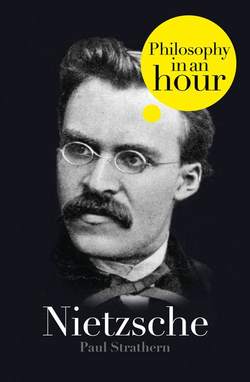Читать книгу Nietzsche: Philosophy in an Hour - Paul Strathern - Страница 4
Introduction
ОглавлениеEarly in the Christian era, philosophy fell asleep. These slumbers eventually produced the philosophic dream known as Scholasticism, based on Aristotle and the teachings of the church.
Philosophy was rudely awakened from these medieval slumbers in the seventeenth century by the arrival of Descartes, with his declaration “Cogito ergo sum” (I think, therefore I am). An age of enlightenment had begun: knowledge was based on reason. But Descartes woke up more than the sleeping scholars. He also woke up the British. They soon responded to Descartes’s rational claim by insisting that our knowledge is not based on reason but on experience. In their zeal, these British empiricists soon destroyed all semblance of reason – reducing philosophy to a series of ever-diminishing sensations. Philosophy was in danger of going to sleep again. Then, in the middle of the eighteenth century, Kant awoke from his dogmatic slumbers and produced an even greater philosophical system than the one which had put philosophy to sleep throughout the Middle Ages. It looked as if philosophy would once again soon be emulating Rip van Winkle. Hegel reacted to this soporific situation by constructing a huge systematic four-poster bed of his own. Schopenhauer decided to try a different tack and introduced a draft of chilly oriental philosophy into the Kantian bed. This had the effect of waking up the young Nietzsche, who leaped into the icy blast and began proclaiming a loud philosophy that was to keep everyone awake for a long time to come.
